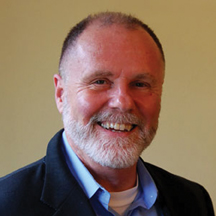 Maybe we’d become too complacent. I think I had. We have all known what it feels like to be unsafe in the world, and we have known how much it hurts to be “otherized”—to be evicted from the circle of “us” and to be treated as less than human. But we have same sex marriage now, and public opinion has shifted in our favor. It was beginning to seem as if we had really left the bad old days behind us. Recently I had heard people openly question whether we even need Pride celebrations any more.
Maybe we’d become too complacent. I think I had. We have all known what it feels like to be unsafe in the world, and we have known how much it hurts to be “otherized”—to be evicted from the circle of “us” and to be treated as less than human. But we have same sex marriage now, and public opinion has shifted in our favor. It was beginning to seem as if we had really left the bad old days behind us. Recently I had heard people openly question whether we even need Pride celebrations any more.
The people murdered in Orlando were disproportionately young, and disproportionately people of color, and they were all slaughtered because they were presumed to be LGBTQ. They were killed in the middle of the month in which our communities, all over the world, celebrate our lives. Their deaths re-opened old wounds and re-awakened dormant fears. On the evening after the slaughter, some friends confided to me that they were apprehensive about going to the vigil in the Castro. They were determined to go anyway, they said, but they were feeling old fears that they had thought were in the past. Suddenly publicly standing with Pride was as important as it had ever been.
Earlier I had looked into how the word “pride” has been discussed in the past and learned that, historically, it has usually not been held in very high regard. Traditionally it has been seen as the opposite of humility. It has been equated with conceit, arrogance, and selfishness, and with a refusal to acknowledge one’s own limits, faults, or wrongs. People don’t have parades to celebrate that kind of pride. So just what do we celebrate?
Pride celebrations have always been a communal healing ritual, a way of collectively conquering fear and exorcising shame. In my work as a therapist over the last three decades, I’ve been privileged to be present as many members of our community, who had been mired in self-hatred, found their way to pride. What all these struggling souls had in common was that they had been unable to see themselves and their experiences through their own eyes. They were “colonized” in a sense by the introjected attitudes and beliefs of their oppressors. It is this alien perspective that we mean when we talk about internalized homophobia, or internalized racism or internalized sexism. When we experience our lives through the eyes of hostile others, we inevitably live in shame.
The opposite of pride is not humility; it is self-alienation.
The emergence from alienation is usually gradual, but sometimes it is sudden and dramatic. People describe these sudden changes as transformations, awakenings, or rebirths. I think Walt Whitman was referring to such an experience when he wrote, “O to have the gag remov’d from one’s mouth!/O to have the feeling, to-day or any day, I am sufficient as I am!”
It isn’t hard to recognize those who have come home to themselves and who live in their own skin. In my experience they always seem to have an aura of quiet dignity. They aren’t arrogant. They know that they are fallible and imperfect, as we all are; they just don’t see that as any cause for shame. Because of this, they aren’t vulnerable to those who would use shame to manipulate them. They are authentic. They live with self-acceptance, and a quiet courage that allows them to live the one and only life that is in them to live.
Above all else, they are not afraid to be seen and known as they are, which gives them the capacity to love and to be loved. These are the qualities that we celebrate during Pride month. This kind of pride isn’t the opposite of humility because we don’t claim it as the exclusive property of any one group alone. The pride we celebrate is also the birthright of every human being on the planet.
That’s why Pride is also very public and very visible. When we celebrate our authenticity, we bear witness to the possibility that all people may live authentic lives, and we align ourselves with the aspirations of oppressed and marginalized peoples everywhere. When we choose to live as free beings, we help to spread freedom everywhere, and by living with courage ourselves, we help others to become less fearful. This year, as in every year since 1970, Pride matters.
Tom Moon is a psychotherapist in San Francisco. For more information, please visit his website http://tommoon.net/ or phone him directly at 415-626-1346.
Recent Comments